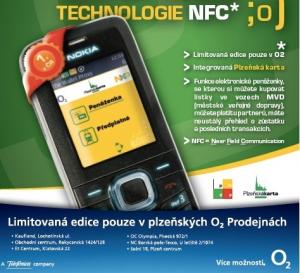Czech Republic Plans Contactless and NFC Rollouts

Banks in the Czech Republic are planning to begin rollouts of contactless payment before the end of 2011, with NFC commercial launches by telcos expected next year.
Spokespersons for the Czech banks and telcos, along with card networks doing business there, confirm to NFC Times plans for the contactless card and NFC phone rollouts–though the size of the rollouts remain unclear.
“We can say there will be a payments revolution in the Czech Republic this year following the contactless payments announcements,” Marcel Gajdoš, Visa Europe’s manager for contactless and mobile projects in the Czech Republic, told NFC Times in a statement. “The number of acceptance places will increase (e)specially in (the) autumn this year.”
If by revolution, Gajdoš means a substantial change from the status quo, well, that would be the case since at present there are no payment cards or merchant terminals supporting contactless to speak of in the Czech Republic.
The rollouts will probably begin slowly, and the Czech Republic is not a large country, with only 10.5 million people. Still, the projects could add momentum to contactless card and NFC launches in Europe, which generally lags behind North America and Asia in contactless payment.
Among contactless hot spots in Europe are the United Kingdom, Turkey and, more recently, Poland.
NFC Trial Planned with Two Banks
Telefónica O2 Czech Republic and Komerční bank last month announced plans for an NFC trial to start in mid-2011, involving 400 users, who will be able to tap Samsung S5230 NFC phones to pay with Visa payWave at three hypermarket locations in the capital Prague and one in the city of Pilsen. The telco had held a first, and smaller, phase of the trial in 2009 with about 50 users, who could tap to pay for bus fares in Pilsen.
In addition to Komerční bank, Citibank Europe plans to issue a Visa payWave application for the new trial. And users in Pilsen would again be able to pay transit fares. The applications would be loaded onto O2 SIM cards.
O2 said it plans to commercially launch NFC in 2012, with payment applications “implemented” on O2 SIM cards to be included in a “standard offering.”
Among the NFC phones it plans to enlist for the rollout are the Samsung Galaxy S II and some BlackBerry models from Research in Motion. The telco would put its O2 Wallet application on the phones, said Richard Walitza, manager for NFC financial services at Telefónica O2 Czech Republic, in a statement.
O2 Czech Republic said the O2 Wallet, likely developed by parent Telefónica, will also carry other services, including transport, loyalty cards and discount vouchers, all stored on the SIM card of their mobile handset.
Germany-based Deutsche Telekom group has also said its T-Mobile Czech Republic unit would launch NFC services next year.
One problem, however, is the lack of point-of-sale terminals accepting either Visa payWave or MasterCard PayPass in the Czech Republic, acknowledged Sirus Zafar, head of cards at Komerční banka. He told NFC Times that the bank plans to install the first contactless terminals for the trial only.
The bank has 1.6 million cards on issue, but no definite plans to roll out contactless.
A spokeswoman for Telefónica O2, however, said that three Czech Banks are planning to issue payWave and PayPass cards, while two acquiring banks plan to install terminals this year and next. She did not identify the banks.
But one of the banks with plans to do both is Ceska Sporitelna, the country’s largest issuer, with just over 3.2 million cards on issue as of the end of 2010. The savings bank will start issuing contactless cards in the fall for all new and replacement cards. The bank, also an acquirer, plans to install contactless terminals in 1,000 merchant locations by the end of the year, starting with supermarkets and hypermarkets along with fast-food outlets.
The cards and terminals from the bank will likely support Visa payWave. MasterCard last year announced there would be some cards and terminals supporting PayPass in the Czech Republic before the end of 2010, though details are sketchy on the numbers. Ceska Sporitelna said it has no plans yet for NFC projects.
A thousand contactless terminals in the Czech Republic from Sporitelna and perhaps some others from competing banks are not a lot, relatively speaking. But it is a good start, figures the telcos, banks and card networks, which hope to turn the Czech Republic into another of Europe’s contactless hot spots.












